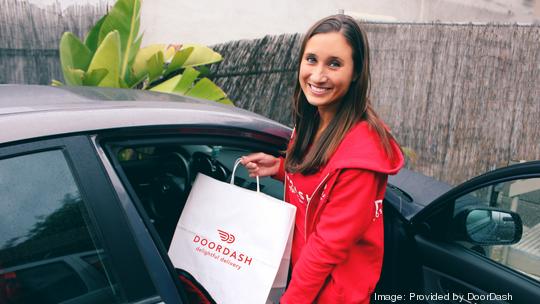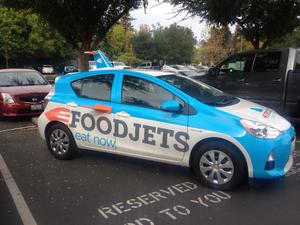
Food delivery platforms like GrubHub and DoorDash Inc. (NYSE: DASH) will be required to disclose new information to customers, after a new law takes effect next year.
On Tuesday, Gov. Gavin Newsom signed Assembly Bill 286. The bill was brought by Assemblywoman Lorena Gonzalez (D-San Diego), and piggybacks off the Fair Food Delivery Act, which she introduced last year.
AB 286 prohibits food delivery platforms from charging customers more for food than the price advertised by the restaurant on the delivery platform’s website, and requires the platforms to provide customers an itemized breakdown of the cost of the delivery, including each separate fee the platform is charging.
It also requires that tips from customers go entirely to the delivery driver, or to the restaurant for a pickup order.
An earlier version of the bill imposed a cap on the commission food delivery platforms could charge to restaurants. That has since been removed, and now food delivery platforms just must disclose to customers that the platform is charging a commission to the restaurant, and restaurants can direct the platform to disclose to customers the amount of the commission.
Food delivery apps more than doubled their sales last year during the pandemic, as restaurants relied on delivery and takeout as their only source of sales while in-person dining was closed.
But some restaurants, especially small, independent businesses, can actually lose money after the app takes its cut, which can be around 30%.
Gonzalez has argued that food delivery apps obscure how much money is actually going to the restaurant, which makes it difficult for customers who are trying to support local businesses.
“Gig companies have profited during the pandemic by keeping consumers and restaurants in the dark about the true cost of their services,” Gonzalez said, in a statement. “Now, small restaurants and their customers will know what they’re being charged upfront and get to see exactly how much is actually benefiting the restaurant.”
Opponents of the bill included chambers of commerce, business advocates and tech advocates from across the state, who argued that restaurants and delivery apps voluntarily enter into service contracts, and making the terms of those contracts public by disclosing fees puts them at a competitive disadvantage.






